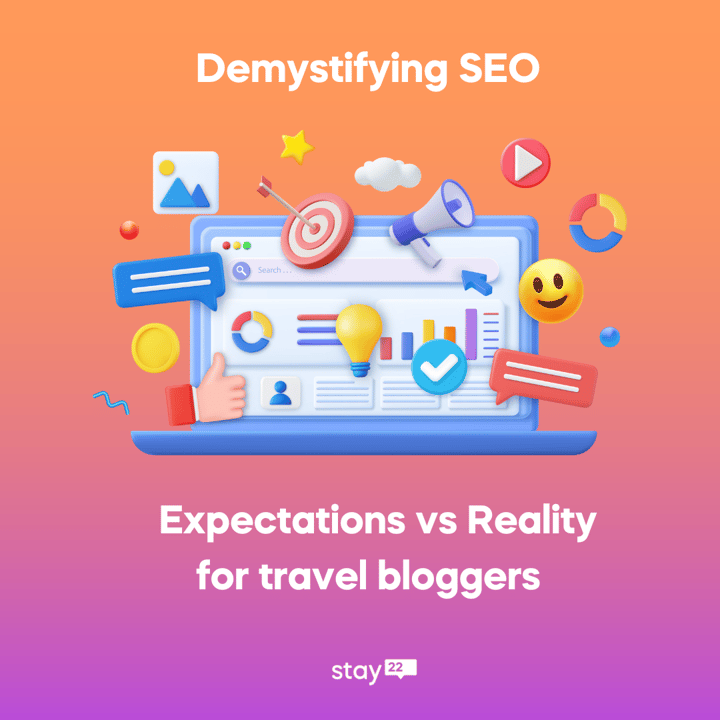SEO it’s an important aspect of your website as a travel blogger, but what do you really know about SEO? There are a lot of misconceptions around it. Yes, SEO aims to improve a website’s visibility and organic (non-paid) search engine ranking but, how long will it take to see results? Let’s delve into the common expectations and the corresponding realities when it comes to SEO.
Immediate Results VS Long-Term Strategy
Many people expect instant gratification from their SEO efforts, anticipating rapid increases in website traffic and rankings. As a travel blogger you need to keep in mind that you're not the only one doing that. Thousands of travel bloggers have good SEO and the competition is rough. A quick stat that you may or may not know- travel blogs are the 2nd most popular type of blog in 2023 after food blogs. Therefore, expecting immediate results for your SEO is setting yourself up for disappointment. You need to adjust the way you approach this and plan for the long term.
After all, SEO is a long-term game. It requires consistent effort (we’ll see later), optimization, and patience to see significant results. Search engines like Google take time to crawl, index, and evaluate websites, and it may take several months before your efforts bear fruit. Building authority, earning quality backlinks, and optimizing content are gradual processes that contribute to long-term success. So be patient as if you were waiting for your flight to board!

SEO as a Standalone Solution VS Holistic Digital Marketing Approach
The expectation that SEO alone can be a standalone solution for achieving online success is a common misconception. While SEO is important for improving search rankings and driving organic traffic, it has limitations when used as the sole marketing tool. It’s like going to Brazil every time to do your content (yeah we love Brazil as you may have noticed on our ChatGPT article 😌). You are limiting yourself for no particular reason. Relying solely on SEO to drive traffic to your website may result in limited reach, insufficient user engagement and conversion, challenges in establishing brand authority, vulnerability to algorithm changes, and incomplete data analysis. The list is long!
To achieve optimal results, SEO is just one component of a comprehensive digital marketing strategy. Combining SEO with other tactics like content marketing, social media marketing, and user experience optimization creates a holistic approach that maximizes visibility, engagement, and conversions.
Just one piece of the puzzle
In conclusion, while SEO can drive significant organic traffic and improve your website's visibility, it requires time, effort, ongoing optimization, and a realistic understanding of the challenges involved. By setting realistic expectations and adopting a long-term strategy, you can harness the power of SEO to achieve sustainable online success.